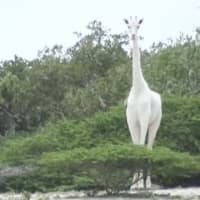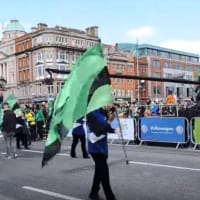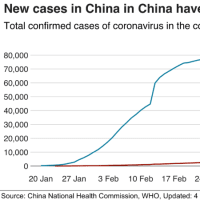2016年8月21日(Sun.) Rioの熱き戦いも間もなく終わり、閉会式が近づいています。 また、トルコでは悲惨な爆弾テロで、50人以上の死者が出ているようです。しかも、結婚のお祝いの集いの中で・・・。
さて、昨今、オーガニックに関する話題がしばしば登場していますが、農薬使用と蜂や蝶の減少の関連について、複数の科学者たちが発表しています。 (ニュースソース: DW-DE 8月17日発 )
<原文の一部>
Pesticides also harmful to wild bees and butterflies, scientists say
農薬は、野生の蜂や蝶にも有害であると、科学者が発表しています。
Neonicotinoids, a widely used class of insecticide, are suspected of harming honeybee populations. But there is growing evidence that they might also have detrimental effects on other important pollinators.
ネオニコチノイド、殺虫剤として広く使われているものですが、これがミツバチ集団(生息数)に有害である疑いがあります。しかし、それだけでなくて他の重要な受粉虫(受粉活動に寄与している虫たち)にも有害な影響を与えている証拠が増えつつあります。

Researchers believe neonicotinoids might at least in part be responsible for the mass deaths of honeybees around the world. Now two studies show that this class of insecticide could also harm wild bees and butterflies.
Ben Woodcock and colleagues from the Centre for Ecology and Hydrology in the UK examined changes in the occurrence of 62 wild bee species across England between 1994 and 2011 - the period when neonicotinoids became widely used.
They found "evidence of increased population extinction rates" of wild bees in places where neonicotinoids were applied to oilseed rape crops.
(抜粋)研究者たちは、世界中で発生しているミツバチの大量死問題とネオニコチノイドが、少なくとも部分的には関係があると考えています。 今、二つの研究から、この種の殺虫剤が、野生の蜂や蝶にも有害であることを示しています。 UK(イギリス)の研究者たちは、イングランドの1994年から2011年における、62種類の野生蜂の発生の変化について検討しました。この期間は、ネオニコチノイドが広く使われてきた時期です。 そして、ネオニコチノイドが使用されてきたナタネ作物のある場所において、野生蜂の絶滅率が増加していると言う証拠を、彼らが確認しました。
Deadly rape
Farmers treat oilseed rape seeds with neonicotinoids before planting them. This way, the whole plant including pollen and nectar will contain neonicotinoids in later stages of growth.
According to a study published in "Nature Communications", the decline of wild bees was on average three times higher among species that regularly feed on these oilseed rape crops compared to species that feed on other plants.
"As a flowering crop, oilseed rape is beneficial for pollinating insects," says Ben Woodcock. "This benefit however, appears to be more than nullified by the effect of neonicotinoid seed treatment on a range of wild bee species."
He stresses, however, that wild bee population declines might also have other causes, including habitat loss, pathogens and other insecticides.
Unlike honeybees, most wild bees live a solitary life and do not form colonies.
Worldwide, several thousands of wild bee species exist. They all prefer different kind of plants and are economically important pollinators, just like honeybees.
(抜粋)致命的なナタネ: 農家の人は、ナタネの種を植える前にネオニコチノイドを処理します。 このことによって、この植物は、生育後の花粉やハチミツにもネオチコチノイドを含有することになります。 当該文献によると、こうした処置をしたナタネ作物エリアの野生蜂の減少は、他の作物(エリア)と比較して3倍も高いとレポートされています。
また、ナタネのように花を咲かせる作物は、受粉活動する虫にとっても有用なものですが、ネオニコチノイドを施した種(タネ)によって、多くの種類の蜂にとって、その有益性を損なう結果をもたらしています(有用ではなくなっている)。
研究者は、野生蜂の減少の原因は他にもあり、生息域の現象や、病原体やその他の殺虫剤なども考えられると強調しています。
ミツバチと違い、多くの野生蜂は単独生活をしていて、コロニーのような形態はとっていません。
世界には、数千種の野生蜂が生息しています。彼らはそれぞれが異なる植物を好み、それぞれが重要な受粉虫の存在になっています、ちょうどミツバチのように。

Butterfly populations are declining worldwide(蝶の生息数も世界的に減少しています。)
Butterfly decline
Neonicotinoid insecticides might also harm butterflies, US researchers report in another study which was published in "Biology Letters".
Matthew Forister of the University of Nevada and colleagues found a "dramatic decline in the number of butterfly species" in lowland Northern California.
The butterfly decline in this region started in the late 1990s. Neonicotinoid use in the region began in 1995. Over time, this insecticide class replaced other substances used before.
The higher the amount of neonicotinoids applied, the fewer the number of butterflies, the researchers found. Butterfly species with smaller bodies and which produce fewer generations per year seem to suffer particularly badly.
(抜粋)蝶の減少: ネオニコチノイド殺虫剤は、蝶にも有害であるに違いありません。アメリカの研究者が、他の文献で発表しています。 それによると、北部カリフォルニアの低地地方において、相当数の蝶の種が劇的に減少しています。 この現象(減少)は1990年代終盤に始まっています。この地域では1995年からネオニコチノイドの使用が始まっていました。そして、時間をかけて、この殺虫剤は以前使用していたものから置き換わって行きました。
ネオニコチノイドの使用量が高まるにつれ、蝶の数が減少して行くことを研究者たちは発見しました。 体の小さな蝶で、年間の生殖回数も少ない種類は特に悪い影響にさらされました。
Bad news for reproduction
Researchers have already demonstrated that neonicotinoids probably harm honeybees - even in small doses.
German researchers in Mainz found that the insecticides interfere with bees' reproduction rates by reducing the amount of an important chemical in the royal jelly bees produce to feed larvae. With lower amounts of this substance, acetylcholine, more larvae are prone to die.
Neurobiologist Randolf Menzel, one of the leading bee researchers in Germany, showed that neonicotinoids make bees lose their orientation and their memory so that the animals don't find their way back to their colony.
The chemicals might also lower the sperm count of male bees, the Institute of Bee Health at the University of Bern, Switzerland, reported just a few weeks ago.
(抜粋)再生への悪情報: 研究者は既に、ネオニコチノイドの使用量が少量であっても、恐らく、ミツバチにとっては有害であると示しています。 ドイツの研究者は、この殺虫剤の影響でミツバチの幼虫に与える有用成分が減るために、幼虫が死に易くなってしまい、再生率が減ることを発見しています。
また、他のドイツの研究者は、ネオニコチノイドは、ミツバチの帰巣本能や記憶を消失させるので、彼らはコロニーに戻れなくなってしまうと発表しています。
また、その化学成分で雄蜂の精子の数が減ることが、スイスの大学で2~3週間前に発表されたばかりでもあります。

Insecticides appear to harm honeybees in more ways than one(殺虫剤は、色々な形でミツバチに害を与えているようです。)
・・・ (以下、殺虫剤メーカーの反論なども掲載されています。)
***
除草剤成分のグリホサートも問題にされていますが、この殺虫剤「ネオニコチノイド」も問題視されています。ミツバチの役割の大きさは計りしれないほどのものであり、彼らが絶滅に向かうと言うことは、人間を含む生物全体にも影響を及ぼすと言うことでしょう。
技術はいつの世も未熟である・・・、だから、後になって、そのことが有害であることが判明することも少なくない(多い)でしょう。しかし、判明するか、若しくは、その恐れがあるのであれば、より安全を確保できる方向に舵を切るべきでしょう。
グリホサート(GMO: 遺伝子組み換え食品問題)や、この記事のネオニコチノイド問題、はたまた、安全神話だった原発も、フクシマの現実からすれば、即座に舵を切る英断を下すべきでしょう。
特定企業や、一部の利得(利権)者だけの金儲けを続けるために、多くの将来を含む人々をも害しかねない行為は即刻止めるべきでしょう・・・。 大所・高所からの判断ができる人が政治家であって欲しいものです。
*** Rio

***
さて、昨今、オーガニックに関する話題がしばしば登場していますが、農薬使用と蜂や蝶の減少の関連について、複数の科学者たちが発表しています。 (ニュースソース: DW-DE 8月17日発 )
<原文の一部>
Pesticides also harmful to wild bees and butterflies, scientists say
農薬は、野生の蜂や蝶にも有害であると、科学者が発表しています。
Neonicotinoids, a widely used class of insecticide, are suspected of harming honeybee populations. But there is growing evidence that they might also have detrimental effects on other important pollinators.
ネオニコチノイド、殺虫剤として広く使われているものですが、これがミツバチ集団(生息数)に有害である疑いがあります。しかし、それだけでなくて他の重要な受粉虫(受粉活動に寄与している虫たち)にも有害な影響を与えている証拠が増えつつあります。

Researchers believe neonicotinoids might at least in part be responsible for the mass deaths of honeybees around the world. Now two studies show that this class of insecticide could also harm wild bees and butterflies.
Ben Woodcock and colleagues from the Centre for Ecology and Hydrology in the UK examined changes in the occurrence of 62 wild bee species across England between 1994 and 2011 - the period when neonicotinoids became widely used.
They found "evidence of increased population extinction rates" of wild bees in places where neonicotinoids were applied to oilseed rape crops.
(抜粋)研究者たちは、世界中で発生しているミツバチの大量死問題とネオニコチノイドが、少なくとも部分的には関係があると考えています。 今、二つの研究から、この種の殺虫剤が、野生の蜂や蝶にも有害であることを示しています。 UK(イギリス)の研究者たちは、イングランドの1994年から2011年における、62種類の野生蜂の発生の変化について検討しました。この期間は、ネオニコチノイドが広く使われてきた時期です。 そして、ネオニコチノイドが使用されてきたナタネ作物のある場所において、野生蜂の絶滅率が増加していると言う証拠を、彼らが確認しました。
Deadly rape
Farmers treat oilseed rape seeds with neonicotinoids before planting them. This way, the whole plant including pollen and nectar will contain neonicotinoids in later stages of growth.
According to a study published in "Nature Communications", the decline of wild bees was on average three times higher among species that regularly feed on these oilseed rape crops compared to species that feed on other plants.
"As a flowering crop, oilseed rape is beneficial for pollinating insects," says Ben Woodcock. "This benefit however, appears to be more than nullified by the effect of neonicotinoid seed treatment on a range of wild bee species."
He stresses, however, that wild bee population declines might also have other causes, including habitat loss, pathogens and other insecticides.
Unlike honeybees, most wild bees live a solitary life and do not form colonies.
Worldwide, several thousands of wild bee species exist. They all prefer different kind of plants and are economically important pollinators, just like honeybees.
(抜粋)致命的なナタネ: 農家の人は、ナタネの種を植える前にネオニコチノイドを処理します。 このことによって、この植物は、生育後の花粉やハチミツにもネオチコチノイドを含有することになります。 当該文献によると、こうした処置をしたナタネ作物エリアの野生蜂の減少は、他の作物(エリア)と比較して3倍も高いとレポートされています。
また、ナタネのように花を咲かせる作物は、受粉活動する虫にとっても有用なものですが、ネオニコチノイドを施した種(タネ)によって、多くの種類の蜂にとって、その有益性を損なう結果をもたらしています(有用ではなくなっている)。
研究者は、野生蜂の減少の原因は他にもあり、生息域の現象や、病原体やその他の殺虫剤なども考えられると強調しています。
ミツバチと違い、多くの野生蜂は単独生活をしていて、コロニーのような形態はとっていません。
世界には、数千種の野生蜂が生息しています。彼らはそれぞれが異なる植物を好み、それぞれが重要な受粉虫の存在になっています、ちょうどミツバチのように。

Butterfly populations are declining worldwide(蝶の生息数も世界的に減少しています。)
Butterfly decline
Neonicotinoid insecticides might also harm butterflies, US researchers report in another study which was published in "Biology Letters".
Matthew Forister of the University of Nevada and colleagues found a "dramatic decline in the number of butterfly species" in lowland Northern California.
The butterfly decline in this region started in the late 1990s. Neonicotinoid use in the region began in 1995. Over time, this insecticide class replaced other substances used before.
The higher the amount of neonicotinoids applied, the fewer the number of butterflies, the researchers found. Butterfly species with smaller bodies and which produce fewer generations per year seem to suffer particularly badly.
(抜粋)蝶の減少: ネオニコチノイド殺虫剤は、蝶にも有害であるに違いありません。アメリカの研究者が、他の文献で発表しています。 それによると、北部カリフォルニアの低地地方において、相当数の蝶の種が劇的に減少しています。 この現象(減少)は1990年代終盤に始まっています。この地域では1995年からネオニコチノイドの使用が始まっていました。そして、時間をかけて、この殺虫剤は以前使用していたものから置き換わって行きました。
ネオニコチノイドの使用量が高まるにつれ、蝶の数が減少して行くことを研究者たちは発見しました。 体の小さな蝶で、年間の生殖回数も少ない種類は特に悪い影響にさらされました。
Bad news for reproduction
Researchers have already demonstrated that neonicotinoids probably harm honeybees - even in small doses.
German researchers in Mainz found that the insecticides interfere with bees' reproduction rates by reducing the amount of an important chemical in the royal jelly bees produce to feed larvae. With lower amounts of this substance, acetylcholine, more larvae are prone to die.
Neurobiologist Randolf Menzel, one of the leading bee researchers in Germany, showed that neonicotinoids make bees lose their orientation and their memory so that the animals don't find their way back to their colony.
The chemicals might also lower the sperm count of male bees, the Institute of Bee Health at the University of Bern, Switzerland, reported just a few weeks ago.
(抜粋)再生への悪情報: 研究者は既に、ネオニコチノイドの使用量が少量であっても、恐らく、ミツバチにとっては有害であると示しています。 ドイツの研究者は、この殺虫剤の影響でミツバチの幼虫に与える有用成分が減るために、幼虫が死に易くなってしまい、再生率が減ることを発見しています。
また、他のドイツの研究者は、ネオニコチノイドは、ミツバチの帰巣本能や記憶を消失させるので、彼らはコロニーに戻れなくなってしまうと発表しています。
また、その化学成分で雄蜂の精子の数が減ることが、スイスの大学で2~3週間前に発表されたばかりでもあります。

Insecticides appear to harm honeybees in more ways than one(殺虫剤は、色々な形でミツバチに害を与えているようです。)
・・・ (以下、殺虫剤メーカーの反論なども掲載されています。)
***
除草剤成分のグリホサートも問題にされていますが、この殺虫剤「ネオニコチノイド」も問題視されています。ミツバチの役割の大きさは計りしれないほどのものであり、彼らが絶滅に向かうと言うことは、人間を含む生物全体にも影響を及ぼすと言うことでしょう。
技術はいつの世も未熟である・・・、だから、後になって、そのことが有害であることが判明することも少なくない(多い)でしょう。しかし、判明するか、若しくは、その恐れがあるのであれば、より安全を確保できる方向に舵を切るべきでしょう。
グリホサート(GMO: 遺伝子組み換え食品問題)や、この記事のネオニコチノイド問題、はたまた、安全神話だった原発も、フクシマの現実からすれば、即座に舵を切る英断を下すべきでしょう。
特定企業や、一部の利得(利権)者だけの金儲けを続けるために、多くの将来を含む人々をも害しかねない行為は即刻止めるべきでしょう・・・。 大所・高所からの判断ができる人が政治家であって欲しいものです。
*** Rio

***




















※コメント投稿者のブログIDはブログ作成者のみに通知されます